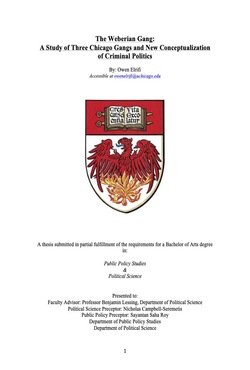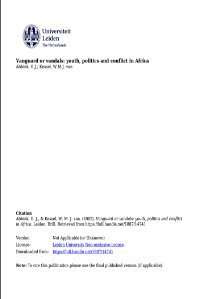By Owen Elrifi
This paper explores the classification of gangs as criminal actors and not as political actors. I propose that urban street gangs often resemble and reflect the actions of the Weberian state in their communities and that this makes them inherently political, even if they do not make explicitly political claims against the state. To test this, I develop a theoretical framework by which to compare gang characteristics to state characteristics. Through ethnographic case studies of three Chicagoan gangs in the latter half of the 20th century, I demonstrate the utility of my framework in analysis and evaluate the similarities between gangs and states.
Chicago: University of Chicago, 2019. 70p.




